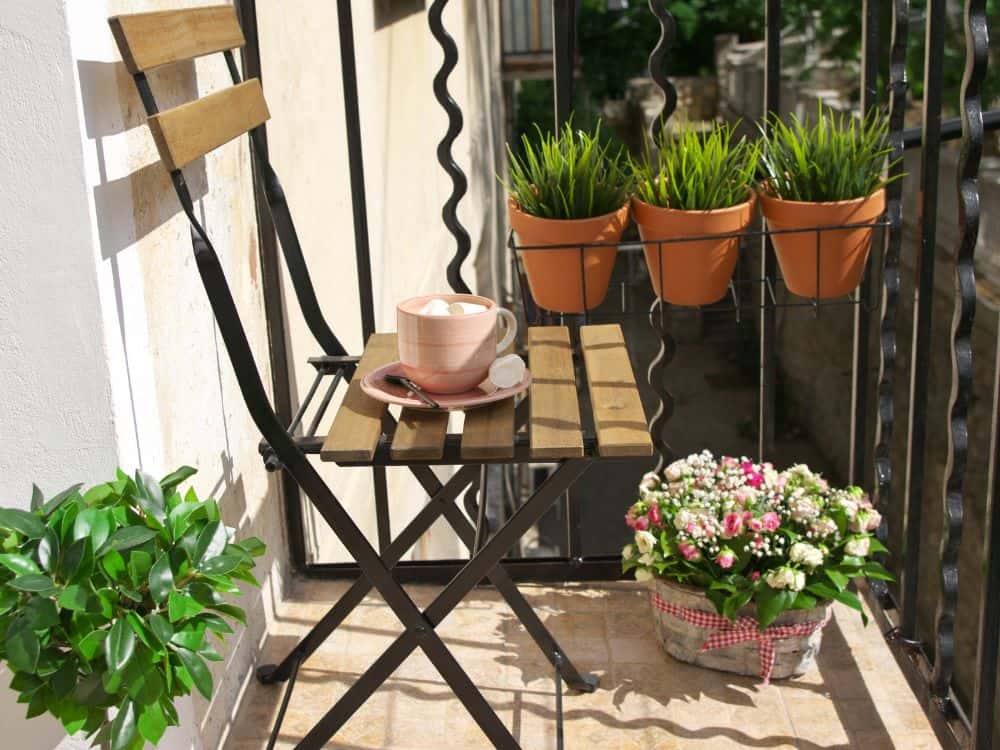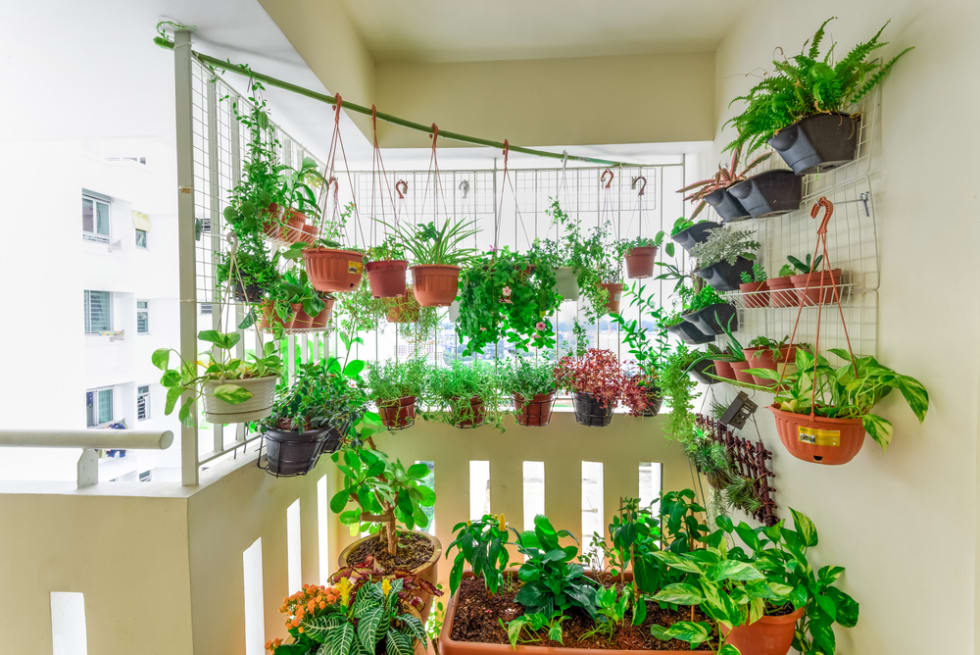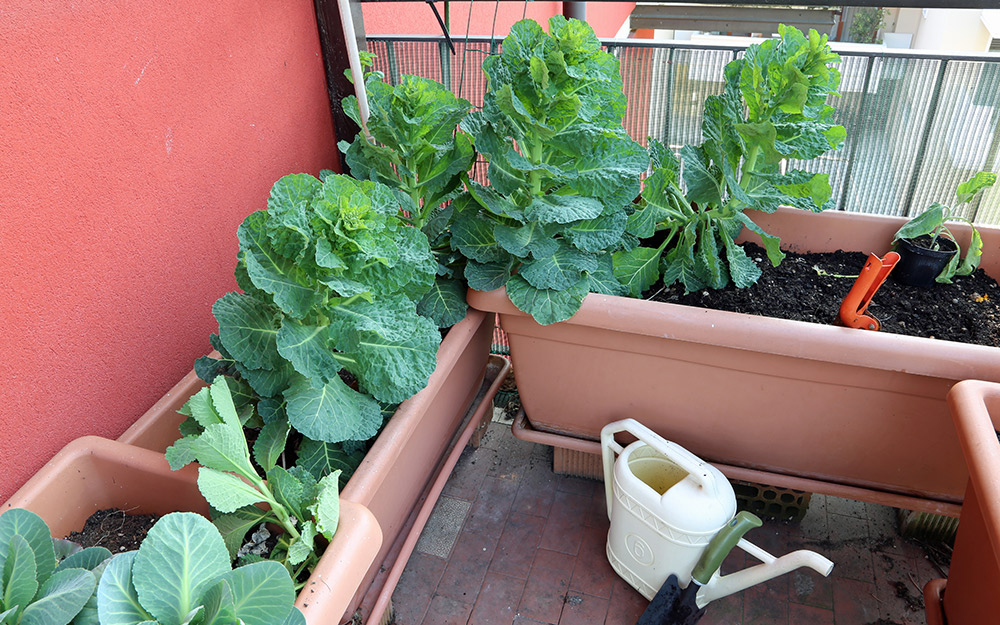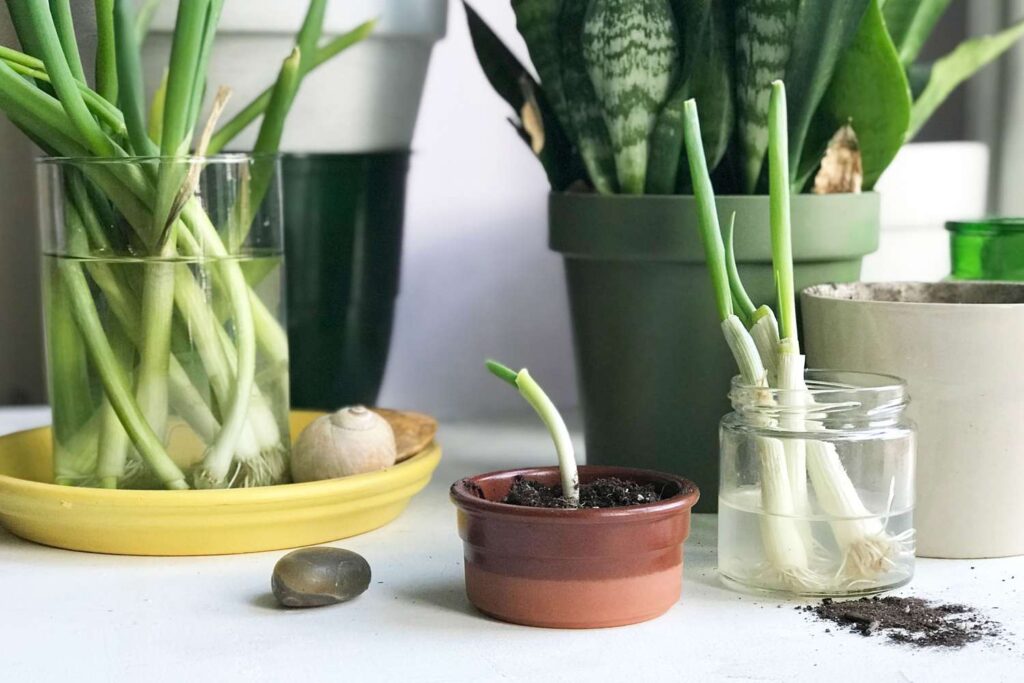Apartment gardening allows you to cultivate plants in small spaces using containers or indoor setups. It’s an ideal solution for city dwellers craving greenery.
Embracing apartment gardening can transform your limited space into a lush, miniature oasis right in your living room or balcony. This method of gardening is not only about beautifying your home but also enhances your living environment, purifying the air and even potentially providing fresh herbs and vegetables.
With the rise of urban living, more people are turning to apartment gardening as a way to reconnect with nature. Whether you have a few small pots on a windowsill or several larger planters on a balcony, starting an apartment garden is a practical and enjoyable way to add a touch of nature to your urban life.
Introduction To Apartment Gardening

Imagine a lush, vibrant garden nestled on your balcony or windowsill.
Apartment gardening is the perfect solution for green-thumbed city dwellers.
It transforms small spaces into refreshing green areas.
With creativity, anyone can cultivate a beautiful and productive garden within their urban abode.
The Rise Of Urban Green Spaces
Cities are now embracing the green revolution.
Urban green spaces are popping up on rooftops, patios, and even indoor corners.
They offer a much-needed touch of nature amidst the concrete jungle.
This movement has encouraged many to start their own apartment gardens.
Benefits Of Growing Your Own Oasis
- Stress Reduction: Plants have a calming effect, making your home a peaceful haven.
- Improved Air Quality: They act as natural air purifiers, enhancing the air you breathe.
- Fresh Produce: Enjoy herbs, vegetables, and fruits grown by your own hands.
- Decorative Appeal: A garden adds beauty and personal touch to your living space.
- Learning Experience: Gardening teaches patience, care, and the cycle of life.

Credit: www.sustainablejungle.com
Maximizing Limited Space
City dwellers often think a lush garden is out of reach. Maximizing limited space unlocks the green oasis in any small apartment. Let’s dive into how to create a garden that thrives in compact areas.
Creative Vertical Gardening Ideas
Think up, not out. Vertical gardening is a game-changer for small spaces. Here are some innovative ways to grow:
- Stacked shelves with potted plants
- Wall-mounted planters for herbs and flowers
- Hanging baskets from the ceiling
- Trellises for climbing vines
These solutions allow more room to move and breathe while enjoying a vibrant garden.
Utilizing Balconies And Windowsills
Balconies and windowsills are precious real estate. They offer sunlight and fresh air – perfect for plants. Transform these spots with:
| Location | Ideal Plants | Tips |
|---|---|---|
| Balcony | Small shrubs, flowers | Use railing boxes for extra space |
| Windowsill | Herbs, succulents | Choose pots that fit securely |
With a little creativity, these areas can become a mini sanctuary.
Choosing The Right Plants
Apartment gardening transforms living spaces into green oases. Picking the right plants ensures a thriving indoor garden. Consider light, space, and care needs. Let’s explore the best plant choices for apartment dwellers.
Best Plants For Indoor Conditions
Indoor plants need to adapt to less sunlight and drier air. Low-maintenance and resilient, these varieties are perfect for indoor settings:
- Snake Plant: Thrives in low light, purifies the air.
- ZZ Plant: Tolerates neglect, ideal for busy gardeners.
- Pothos: Grows in various light conditions, easy to care for.
- Peace Lily: Adapts well indoors, signals when thirsty.
- Spider Plant: Resilient, great for hanging baskets.
Herbs And Vegetables For Edible Gardens
Growing edible plants offers fresh flavors and health benefits. These herbs and vegetables are ideal for small spaces:
| Herb/Vegetable | Light Requirement | Care Tips |
|---|---|---|
| Basil | Bright, indirect light | Keep soil moist, prune regularly. |
| Cherry Tomatoes | Full sunlight | Support with stakes, water consistently. |
| Mint | Partial to full sunlight | Water often, trim to control growth. |
| Spinach | Partial shade | Keep soil moist, harvest leaves early. |
| Chives | Bright light | Water when soil is dry, cut often. |

Credit: www.apartmentlist.com
Essential Tools And Supplies
Growing a garden in an apartment brings nature indoors. It turns a home into an oasis. But, to start, some essential tools and supplies are necessary. Let’s dive into what every apartment gardener needs.
Basic Gardening Toolkit
Gardening requires tools, even in small spaces. A basic toolkit includes:
- Trowel: For planting and moving soil.
- Pruners: To cut and shape plants.
- Watering can: With a long spout, it reaches all plants.
- Gloves: To keep hands clean and safe.
- Spray bottle: For gentle watering of seedlings.
Soil And Fertilizer Selection
Good soil and fertilizer make plants thrive. Use this table to choose:
| Soil Type | Best For | Fertilizer Type | Usage |
|---|---|---|---|
| Potting Mix | Most indoor plants | Balanced | Every 2 months |
| Cactus Mix | Succulents and cacti | Low-nitrogen | Twice a year |
| Organic Mix | Eco-friendly options | Organic | As per product guide |
Remember to match soil and fertilizer to your plant’s needs. This ensures they grow healthy and strong.
Lighting And Environmental Control
Mastering lighting and environmental control is key to thriving apartment gardens. Let’s explore how to optimize these elements for your indoor plants.
Natural Light Versus Grow Lights
Choosing the right light source is crucial. Natural light is ideal, but not always enough. South-facing windows offer the most sunlight. If natural light is limited, grow lights can fill the gap.
- Natural light is free and mimics the natural environment of plants.
- Grow lights provide consistent light, essential during winter or in darker apartments.
Grow lights come in various types:
| Type | Benefits |
|---|---|
| LEDs | Energy-efficient, long-lasting |
| Fluorescents | Good for seedlings and greens |
| HID | Powerful, for bigger plants |
Managing Temperature And Humidity
Plants need the right temperature and humidity to grow. Most thrive at 65-75°F. Humidity levels are best between 40% and 60%.
To manage these conditions:
- Use a thermometer to check room temperatures.
- Humidifiers or dehumidifiers adjust humidity.
- Avoid placing plants near heat sources or drafts.
Monitoring and adjusting your apartment’s environment keeps plants healthy. A stable environment lets plants focus on growth.
Watering And Maintenance Routines

Keeping your apartment garden thriving involves regular watering and maintenance. This routine ensures that your plants stay healthy and beautiful. Let’s dive into effective ways to manage these tasks in a small space.
Irrigation Solutions For Small Spaces
Proper watering is key in any garden, especially in compact areas. Here are some smart solutions:
- Drip irrigation kits: These systems deliver water directly to the roots, reducing waste and ensuring that each plant gets just the right amount of moisture.
- Self-watering pots: Ideal for busy gardeners, these pots have a reservoir that allows plants to absorb water as needed.
- Watering globes: These glass bulbs add a decorative touch while keeping soil moist.
Regular Care For Plant Health
Consistent care is crucial for your plants’ longevity. Follow these tips:
- Check soil moisture regularly: Stick your finger about an inch deep. If dry, it’s time to water.
- Clean leaves: Wipe dust off with a damp cloth. This helps plants absorb more sunlight.
- Prune regularly: Removing dead or overgrown parts encourages new growth and improves plant health.
By setting a routine for these tasks, your garden will flourish even in limited space.
Dealing With Pests And Problems
Gardening in an apartment brings fresh greens to your doorstep. Yet, it’s not without its share of tiny intruders. Pests can be a real headache for urban green thumbs. But don’t worry! With the right know-how, you can keep your garden lush and healthy.
Organic Pest Control Methods
Organic solutions are safe for your plants and the environment. They can effectively keep pests at bay.
- Neem oil is a natural pesticide. It keeps bugs away without harming your plants.
- Soap and water can be a simple yet effective spray. It targets aphids and mites.
- Diatomaceous earth is a powder that cuts through insect exoskeletons. It’s deadly to pests but harmless to humans.
Common Apartment Gardening Challenges
Space limitations and light availability are typical issues in apartment gardening. Here’s how to overcome them:
| Challenge | Solution |
|---|---|
| Small Spaces | Use vertical planters or hanging pots to maximize space. |
| Limited Light | Choose shade-tolerant plants or use grow lights. |
| Poor Ventilation | Ensure regular air flow with fans or by opening windows. |
Incorporating Aesthetic Elements
Apartment gardening transforms your space into a vibrant oasis. It’s not just about growing plants. It’s about creating beauty too. Let’s dive into how to make your green corner both functional and stunning.
Designing With Color And Texture
Plants bring a burst of life with their colors and textures. Choose a color scheme that suits your style. Mix and match plants to create a visual feast. Think about the seasons. Use foliage and blooms to add interest all year round.
- Green tones for calmness
- Bright flowers for cheer
- Succulents for texture
Textures make your garden feel alive. Combine glossy leaves with matte ones. Pair feathery ferns with spiky cacti. This contrast will make your garden pop.
Adding Decorative Pots And Planters
Pots and planters are the outfits of your plants. They show off your style. Choose pots that match or contrast with your plants. Here are some ideas:
| Pot Material | Style | Plant Type |
|---|---|---|
| Ceramic | Elegant | Orchids |
| Wood | Rustic | Herbs |
| Metal | Modern | Succulents |
Think about the size and shape of pots too. Tall plants need deep pots. Trailing plants shine in hanging baskets. Mix sizes for a dynamic display.
Community And Shared Spaces
Apartment gardening transforms living spaces into green havens. It’s not just about the plants; it’s about the people too. Community and shared spaces bring neighbors together. They turn individual efforts into collective achievements. Let’s explore how to nurture both plants and community bonds.
Joining Or Starting A Gardening Club
A gardening club is a great way to connect. It offers a space to share tips, tools, and company. Learn from seasoned gardeners. Teach new friends. It’s a perfect way to blend socializing with learning.
- Find local clubs at community centers or online.
- Start your own if none exist. Use social media to invite neighbors.
- Plan regular meet-ups for sowing, maintaining, and harvesting.
Sharing Harvests And Cuttings
Shared harvests mean more than just fresh produce. They are about generosity and community spirit. Cuttings help gardens grow and friendships blossom.
| What to Share | Benefits |
|---|---|
| Fruits and Vegetables | Healthy eating for all |
| Herbs | Flavorful cooking adventures |
| Flower Cuttings | Beautify multiple spaces |
| Seeds | Grow the community garden |
Organize swap events for sharing your bounty. Create a communal space where neighbors can take what they need and leave what they can.
Conclusion: Thriving In An Urban Jungle
Urban dwellers often miss the charm of nature. Apartment gardening turns concrete spaces into green havens. It brings nature to your doorstep. It transforms homes into vibrant, life-filled spaces. This section celebrates the joy and growth that come from nurturing plants in small spaces.
The Joy Of Apartment Gardening
Gardening in a limited space brings immense satisfaction. It’s about creating life and beauty in unlikely places. Colorful blooms and lush foliage can make any room feel alive. The smell of fresh herbs can invigorate any kitchen. Watching your plants grow is a daily delight.
- Improves air quality
- Reduces stress
- Enhances focus and creativity
Expanding Your Green Thumb
Apartment gardening is a journey of learning and discovery. It allows you to experiment with different plants. You can grow from simple succulents to exotic flowers. Each success in gardening boosts your confidence and skills.
| Plant Type | Benefits | Care Level |
|---|---|---|
| Succulents | Drought-resistant | Low |
| Herbs | Edible, Aromatic | Medium |
| Flowering Plants | Attractive, Colorful | High |
Embrace the challenge of growing a variety of plants. Each new plant can teach you more about gardening. It can make your urban jungle thrive. Remember, every plant has its own needs. Pay attention to them for the best results.

Credit: www.homedepot.com
Frequently Asked Questions
Can I Make A Garden In My Apartment?
Yes, you can create a garden in your apartment using containers or indoor planters. Opt for sunlight-friendly spots and choose suitable plants for indoor conditions.
What Vegetables Are Easy To Grow In An Apartment?
Easily grown apartment vegetables include lettuce, herbs, spinach, cherry tomatoes, and bell peppers. These thrive indoors with sufficient light and care.
What Is The Best Plant To Grow In An Apartment?
The best plant to grow in an apartment is the snake plant. It thrives in low light and requires minimal care, making it ideal for indoor environments.
Can I Grow Vegetables Inside My Apartment?
Yes, you can grow vegetables inside your apartment using containers and ensuring they receive adequate sunlight or artificial grow lights.
Conclusion
Embracing apartment gardening enriches lives with a touch of nature’s serenity. It’s a journey of growth, both for plants and planters. Start small, nurture your garden, and watch as your space transforms. Ready to bring the outdoors in? Let your green thumb flourish, even in the smallest spaces.
Happy gardening!

